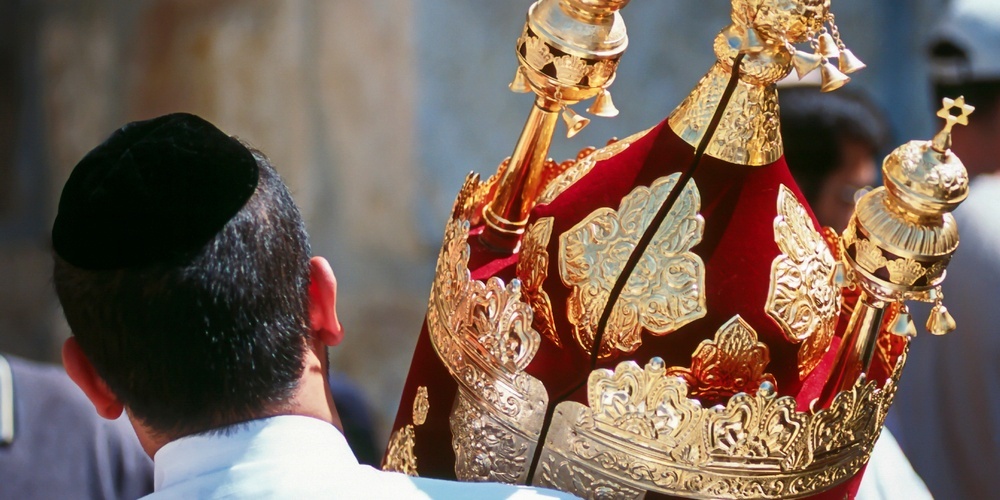Rabbinic tradition maintains that the Torah existed even before the creation of the world, in essence serving as the architectural blueprint of creation. This is a beautiful concept that teaches that Torah is built into the fabric of the world. Nature and morality are to work together harmoniously. Furthermore, our Sages teach that our founding patriarchs and matriarchs observed the Torah even before it was given.
It is with this understanding that our Sages see textual hints to later day observances of the Torah. Lot, presumably learning from his uncle, served matza to his guests because it was Pesach. Rearranging the letters of the word גַּ֔רְתִּי that “I [Yaakov] lived with Lavan", to spell תרי״ג, our Sages understand Yaakov to be saying that he observed the 613 mitzvot even while in Lavan’s home.
Using a play on the words agalot, wagons, that Yosef send to his father to escort him to Egypt, and eglah, a calf, our Sages assert that just before sending Yosef to seek his brothers, father and son were learning the laws of eglah arufa, the ritual when a body of one murdered is found and it is unknown who may have killed the person.
Clearly, these teachings are not meant literally. One cannot tell the story of the Exodus 500 years before it happened and no one person can actually keep all 613 mitzvot. Our Sages are rather teaching the centrality of Torah. Our founding patriarchs and matriarchs intuited much of Torah, observing as much as they could as they attempted to live by and teach the highest of moral standards. They may not – and often could not – literally keep the Torah but with every ritual serving as a way to highlight ethical teaching our patriarchs and matriarchs observed the teaching even if not the ritual.
Lot did not need to know the story of the Exodus[1] to understand that we need to take care of the needs of the stranger, even if we were not “strangers in the Land of Egypt”. Yaakov may have spent 20 years with a very different type of uncle than Avraham, but unlike in his earlier years was a model of honesty, integrity acting in the most forthright matter. Yaakov learned the very hard way the danger of letting someone travel alone – a teaching that is later codified into the law of the eglah arufah, a law that is a result of the elders of the town not doing enough to ensure the safety of all.
And yet when welcoming guests into his home Avraham served meat and milk. “He took curds and milk and the calf that had been prepared and set these before them”. Did Avraham reject the laws of kashrut? Would someone who, in the words of our sages prepared an eiruv tavhsilin, - a post biblical rabbinic enactment - actually serve meat and milk? The Torah answers that question with a resounding yes. In the formulation of the Sages, Avraham would not dare eat meat and milk together. And, in fact, Avraham did not do so. “And he waited on them under the tree as they ate.” While he may have intuited and voluntarily kept the Torah that gave him no right to impose these strictures on his guests. He wanted the best meal for them and the best was meat and milk. Avraham understood – and we his descendants must follow in his ways – that one should never push one's religious acts of piety on others.
And these were not you typical guests. They were - or so Avraham thought - idolaters. “Let a little water be brought; bathe your feet and recline under the tree”. Our sages teach that Avraham had them wash their feet in order to cleanse any possible traces of idolatry. Yet while Avraham, rejected idolatry he welcomed idolaters. And unlike the vast majority of the mitzvot of the Torah, the prohibition of idolatry had already been told to Noach, some 10 generations earlier.
Is it any wonder that such a person would plead for the people of Sedom, would argue with G-d to save them, going so far as to accuse G-d of acting unjustly? Moreover, is it any wonder that G-d would choose this same person to found His very special nation?
Moshe may have brought us the Torah from Sinai. But it is Avraham who first taught us Torah. Telling G-d who had come to visit the recovering patient that he cant speak now as he had to welcome idolaters to his home, he understood that the primary teaching of Torah is the love and concern we must have for mankind.
[1] It could very well be that Lot learned this lesson form his own personal experience in Egypt. If his aunt could be kidnapped he wanted to ensure that stranger arriving in Lot would not suffer the same fate.

